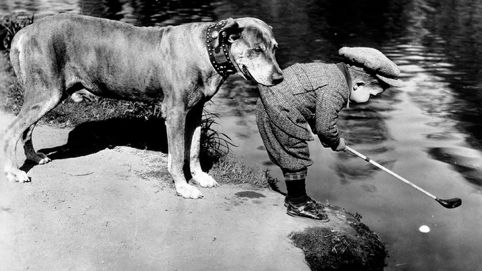很多职场同学都有一个担忧,为人父母后还可以成为一个好的管理者吗?特别是职场中的女性,担心自己成为母亲后会影响自己的工作。还有一部分管理者也存在这样的偏见,认为已经做了爸爸妈妈的同学的职场表现会下降。而今天为大家带来这样一篇文章,英文标题是《Being a Parent Made Me a Better Manager》,中文翻译为《为人父母使我成为更好的管理者》。
文章作者是Jelena Zikic,是约克大学的助理教授。通过她的研究和实践,探索各个职业人群如何将自己的职业生涯与人生转变进行结合。
首先文章谈到了目前大家都在谈论的生活与工作的平衡:
Over the last 10 or 15 years those of us who work for organizations have gotten more and more comfortable talking about work-life balance as a business issue; about making the workplace more human, authentic, and compassionate; and about discussing work as something that deserves passion, meaning, even love.(在过去的10到15年里,我们越来越自在地讨论工作与生活的平衡,并把它视为一个商业问题,讨论如何使工作环境更人性、更真诚、更有同情心,把工作当作热情、富有意义、值得去爱的事业。)
而生活和工作平衡是否就是真正将二者切割开呢?文章说到:
And yet when we go home at the end of the day, how much of what we learn at work about prioritizing, communicating, and managing conflict gets left at the office? And even more important, when we go back into work the following morning, how much of what we’ve learned from our families about patience, empathy, and so on gets left behind?(然而,当工作结束回到家时,我们在工作中所学到的轻重缓急、沟通和冲突管理有多少能被带回家呢?进一步说,我们第二天上班时,又有多少在家庭生活中的耐心、同理心等被抛在脑后了呢?)
Becoming a parent has made me realize just how absurd and wasteful this lack of spillover is. Who we are as parents matters to who we are at work. The skills we learn as we engage in parenting ought to transfer into our work, and vice versa.(为人父母让我意识到,这两者无法相互影响是很荒唐的,而且造成浪费。作为父母的我们,对工作时的我们影响颇大。作父母获得的技巧应被转化到工作中,反之亦然。)
为此,作者作为一个学者,开始了自己的研究:
As a researcher, I have approached my parenting role similarly to how I’ve approached research topics — with true passion and curiosity to fully understand all of its intricacies. This has meant reading parenting literature, talking to other parents (in my research mind I was “interviewing” them), and attending parenting workshops, all while noticing how effective (or not) my various approaches to parenting may be. Children, unlike many managers, are very quick and direct with feedback.(身为学者,我借鉴研究课题的方法,带着热情和好奇心理解所有育儿问题。其中包括:阅读育儿书籍、与其他父母交谈(从学者角度“采访”他们)、参加亲子工作坊。与此同时,观察自己多样的育儿方式究竟多有效(或是无效)。与经理不同,孩子们的反馈非常迅速直接。)
从她的研究中,她得出了三个可以将带孩子的经验运用于工作中:
My research is ongoing, but below I describe three skills I’ve learned from parenting that have helped me in my work life:(我的研究还在继续,下面我会描述三个对我工作有所帮助的育儿技巧):
Adapting to change. As a parent, I find myself constantly adapting to new situations. My “family team” constantly challenges me with new “parenting dilemmas,” just as things at work are never static. Our parenting journeys evolve as we see our children learn their first words, make their first steps, make friends, and face disappointments. The moment you feel you’ve got everyone on board and things seem to be going smoothly, the situation quickly changes; a new growth spurt or developmental milestone comes along, and suddenly new questions need to be addressed.
Dealing with this routine chaos makes us better at creating our own “dynamic capabilities.” Raising children teaches us how to become more adaptive to change — to cope with change while learning from it. Children challenge us to accept that stability is not normal and that developing the readiness to deal with uncertainty and accept new daily challenges will make us perform better as parents. As our children grow, we grow with them. In this process parenting allows us to reflect and adapt together with our children, and sometimes even learn from our mistakes. The same sets of skills are an asset in today’s workforce.
-
- 适应变化。
作为家长,我发现自己一直在适应新的环境。“家庭团队”时常会让我面对“育儿困境”的挑战,就像工作中的事情从不会静止不动。我们见证孩子第一次开口说话,第一次走路,交朋友和第一次感觉失望。当你觉得一切已经准备周全,事情看似进展顺利时,情况很快就变了。突然出现新的成长或是发展转折点,同时带来了新的有待解决的问题。
处理这些日常问题让我们能够更好地培养“动态能力”。养育子女教会了我们如何更好地适应变化,应对改变,并从中学习。育儿挑战让我们接受稳定并非常态,在面对不确定性时需要做好准备,接受新的日常挑战能够让我们成为更好的父母。我们和孩子一起适应,一起成长。有时甚至从错误中学习。这些技巧对工作同样有用。
Respecting psychological safety as a universal human need. How often do you think about making your coworkers feel safe? If you’re like most people, it’s not that often. And yet as a parent how often do you think about making your kids feel safe? If you’re like most parents, it’s every day.
As parents, we seek to create an environment where children can learn and grow, challenge themselves and feel safe to explore, ask questions and share their fears and uncertainties. The more we’re able to create a positive, open family environment, the stronger our relationships with our children become.
In the same way, when we open our office door we’re faced with one of the hardest and most important management tasks: managing relationships. The more open and psychologically safe our team environment is, the better our team dynamics will be. The more we can adopt a nurturing, open mindset with our colleagues or protégés, the stronger the bonds we build. As we strive to make our children resilient and capable of finding their own solutions, we can do the same with our team members. This means creating a culture at work where psychological safety comes first, where your coworkers feel comfortable and willing to share their concerns, needs, and ideas.
-
- 心理安全感是普世需求。
你会经常考虑让同事们感觉安全吗?如果你和大多数人一样,那么想必是不会的。然而,作为父母,你是否会时刻想要让你的孩子感觉安全呢?如果你和大部分父母一样,那肯定是每一天。
作为父母,我们想要创造环境让孩子能够学习、成长、挑战自我,放心地去探索、提问、去分享恐惧与不安。我们创造这样积极、开放的家庭氛围的能力越强,我们与孩子也就越亲密。
同样,当我们进入办公室,面临着最为艰巨、也最为重要的管理任务之一:管理人际关系。我们团队氛围越开放,越让人有心理安全感,团队越有活力。对待同事或是下属时的心态越开放、越持鼓励态度,关系就会越紧密。就像我们努力让孩子自我调节、自己找到问题的解决方法一样,对团队成员也能做相同的事。这意味着在工作中营造具有心理安全感的文化,让同事们感觉舒适并且愿意分享他们的忧虑、需求与想法。
Self-reflecting and continually improving. Becoming a parent is one of the toughest jobs we can undertake. The “hours” are 24/7 yet it is often our most gratifying role. As in any role that motivates and challenges us, we want to be good at it. But while we may question our skill at parenting or at work, we may have trouble getting past self-doubt.
Like leadership coaches, parenting experts would encourage us not only to question our parenting approaches but also to learn from our mistakes and our children’s feedback. Authentic parenting, like authentic leadership, invites us to be true to our values, open to feedback, experts at active listening, and willing to experiment with new approaches.
This last point is what the “positive spillovers” idea rests upon. For positive spillovers between parenting and work to happen, we must reflect on how we operate and who we are in each domain. If we don’t question our existing ways of doing things, we can’t learn, and we can’t improve.
-
- 自我审视与不断改进。
为人父母是我们承担的最困难的工作之一。尽管全天无休,它往往是让我们感觉最为愉快与满意的角色。我们希望能胜任有挑战性的角色,但可能会质疑自己育儿或是工作时的表现,我们也许很难摆脱自我怀疑。
和领导力训练师一样,育儿专家会鼓励我们不仅要反思育儿方式,而且要从自己的错误和孩子的反馈中吸取经验。真正的育儿方式,就像真正的领导力一样,让我们忠于自己的价值观,对意见持开放态度,成为积极聆听的专家,并且愿意试验新方法。
最后的一点,是“积极的影响”这一观点究竟源于何处。要实现育儿与工作间的积极影响,我们必须考虑自己在这两个领域分别是怎样的角色,又是如何行事的。如果不质疑目前的行事方式,我们就无法学习,无从提高。
总结一下作者的三个经验:适应变化、心理安全感是普世需求、自我审视与不断改进。在文末,作者饱含深情地写到:
Our children are probably our best and most honest judges; they provide the most direct, trusting performance evaluation we’ll ever get. We can reflect on what they teach us to be better leaders, and we can use what we learn at work to be better parents.(孩子也许是我们最好、最诚实的评审。他们提供给我们最直接、也最值得信赖的业绩评估。通过反思他们教给我们的东西,我们能够成为更好的领导者。同时,我们也能够运用工作中学到的东西,成为更好的父母。)
就像作者说的,孩子也许是我们最好、最诚实的评审。如果你已为人父母,或者即将为人父母,请对自己有信心成为一个好的爸爸(妈妈),也能够在职场取得更好的发展。

